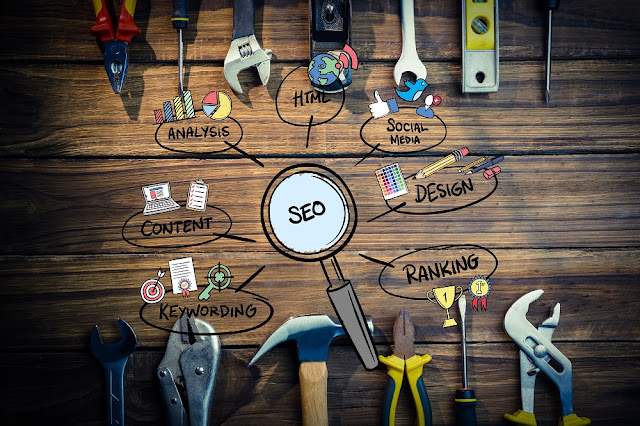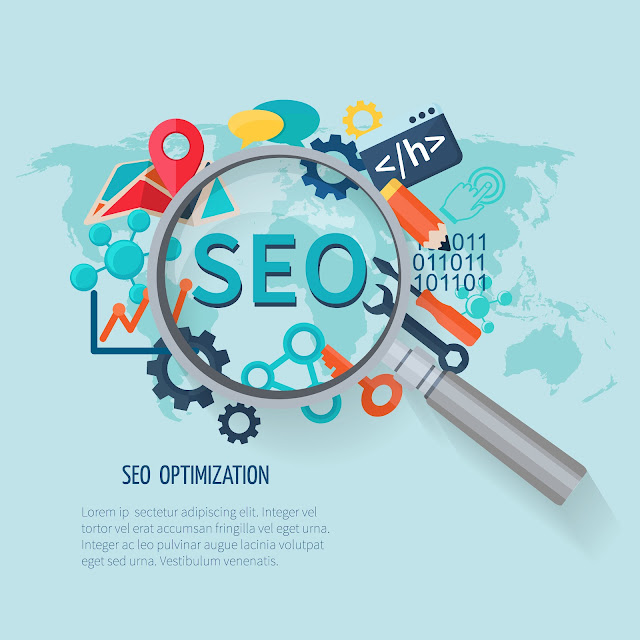What is PPC marketing?
Pay-per-click (PPC) marketing is an
online advertising model where advertisers pay each time a user clicks one of
their ads. This model has grown increasingly popular over time due to its
efficiency in driving traffic and generating revenue for businesses of all
sizes. In this article, we'll take you through the basics of PPC marketing and
how it can benefit your business.
What is PPC marketing?
Pay-per-click (PPC) marketing is an
online form of digital advertising that involves placing ads on search engine
results pages (SERPs), social media platforms, or other websites. Advertisers
bid on specific keywords and phrases related to their products or services,
displaying those ads to users searching those terms.
When a user clicks an ad, the
advertiser pays a predetermined amount, usually determined through a bidding
system. The cost per click (CPC) may differ based on competition for certain
keywords and the quality of the ad itself.
PPC campaigns are typically managed
through platforms like Google Ads or Bing Ads, which allow advertisers to
create and manage their ads, set budgets, and track performance metrics.
PPC marketing offers many advantages
for businesses.
1. Targeted Advertising
Pay-Per-Click (PPC) marketing enables
businesses to identify and reach their ideal audience based on demographics,
interests, and search behavior. This ensures that ads will be seen by people
who already show an interest in what the advertiser offers, increasing
conversion rates.
2. Cost-Effective
PPC advertising can be highly
cost-effective when managed correctly. Advertisers only pay when someone clicks
on their ad, eliminating wasteful spending on impressions without leading to
clicks or conversions. Moreover, advertisers control spending and can optimize
campaigns for maximum return on investment (ROI).
3. Measurable Results
PPC marketing offers businesses
tangible outcomes that can be tracked and evaluated in real-time. Advertisers
can monitor key performance indicators (KPIs) like click-through rates (CTRs),
conversion rates, and cost per conversion to optimize campaigns and boost ROI.
4. Quick Results
PPC marketing stands out among other
forms of marketing, as it generates traffic and conversions almost immediately.
This is especially helpful for businesses that need to generate leads or sales
quickly - such as those in e-commerce or B2B industries.
Learn the secrets to creating a
successful Pay-Per-Click campaign.
1. Define Your Goals
Before creating your initial PPC
campaign, it is essential to define your objectives. Are you seeking leads,
increasing sales, or driving website traffic? Clear objectives will enable you
to select the appropriate keywords, ad format, and targeting options to achieve
your desired outcomes.
2. Conduct Keyword Research
Keyword research is identifying
search terms people use to locate products or services similar to yours. This
information is essential for crafting effective ad campaigns that reach the
right audience. Utilize tools like Google Keyword Planner or SEMrush to locate
relevant keywords with high volume but low competition.
3. Craft effective ad copy
Your ad copy should be eye-catching,
concise, and pertinent to your target keywords. It should also highlight the
unique selling points of your product or service and include a clear
call-to-action (CTA) that encourages users to click on it. Experiment with
different formats like text, display, or video ads to see which works best for
your business.
4. Establish a Budget
PPC advertising can be costly if not
managed properly, so it's essential to set an amount and stick to it. Start
small with your budget, then increase it, as the results show. Utilize tools
like Google Ads' budget planner to estimate monthly spending, then adjust bids
and targeting options within this range.
5. Monitor and Optimize Your Campaign
Once your campaign is up and running,
it is essential to regularly assess its performance. Look at key performance
indicators (KPIs) like CTR, conversion rate, and cost per conversion to
identify areas for improvement. Adjust targeting, bidding strategy, and ad copy
as needed to enhance performance and ROI.
6. Experiment and test
PPC marketing is a constant cycle of
testing and refining. Experiment with different ad formats, bidding strategies,
and targeting options to determine the best for your business. A/B tests your
ad copy and landing pages to boost conversion rates. Use the data from these
experiments to make informed decisions and continuously improve your campaign's
performance.
Tips for Successful PPC Marketing
1. Utilize negative keywords to
reduce unnecessary clicks and save money on advertising.
2. Create distinct campaigns for
products or services to guarantee targeted messaging.
3. Utilize ad extensions to provide
additional information and boost click-through rates.
4. Ensure your landing page is
tailored to your ad and optimized for conversions.
5. Keep your campaigns organized and
manageable by following proper naming conventions and structure.
6. Don't overlook remarketing.
Retargeting ads are an effective way to bring back users who previously visited
your site or engaged with your ads.
Conclusion
Pay-Per-Click marketing (PPC)
advertising is an efficient way for businesses of all sizes to drive traffic,
generate leads and boost sales. With its ability to target specific audiences,
provide measurable outcomes, and offer quick returns, it's no wonder many are
investing in PPC advertising.
However, creating a successful PPC campaign necessitates careful planning, execution, and ongoing optimization.
You can ensure your PPC campaign produces results by clearly defining your
objectives, conducting keyword research, crafting captivating ad copy, setting
an effective budget, and monitoring its performance over time.



This ppc management agency article is a treasure trove of insights into optimizing digital marketing campaigns. It provides practical tips and strategies for achieving outstanding results. Kudos to the author for sharing such valuable expertise!
ReplyDeleteLooking for a top PPC agency in Delhi ? Anadee Digital Solutions delivers high-ROI paid ad campaigns on Google, Facebook, and more. Our expert strategies drive targeted traffic, maximize conversions, and boost brand visibility. Get data-driven results with our customized PPC solutions. Partner with us today to grow your business online
ReplyDelete